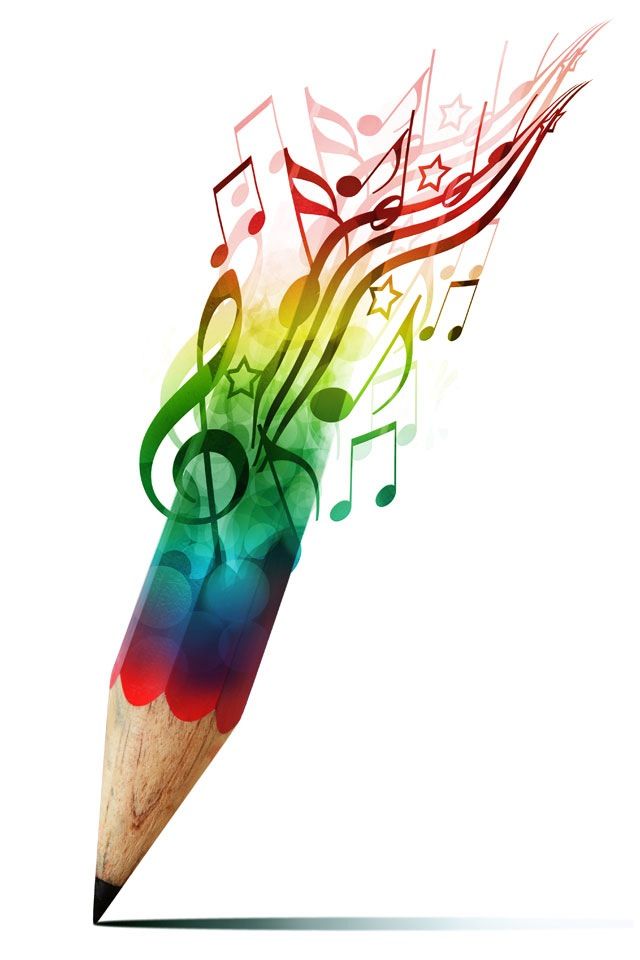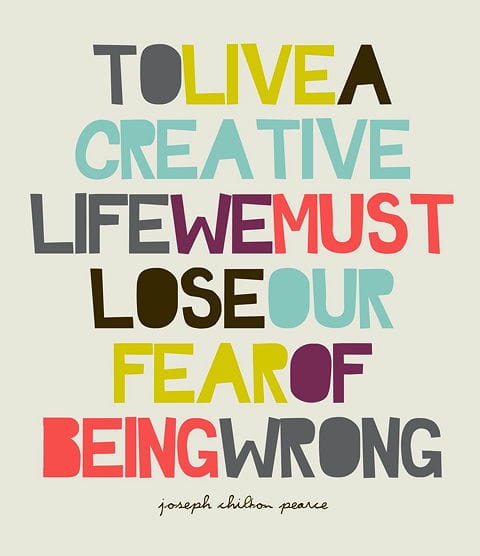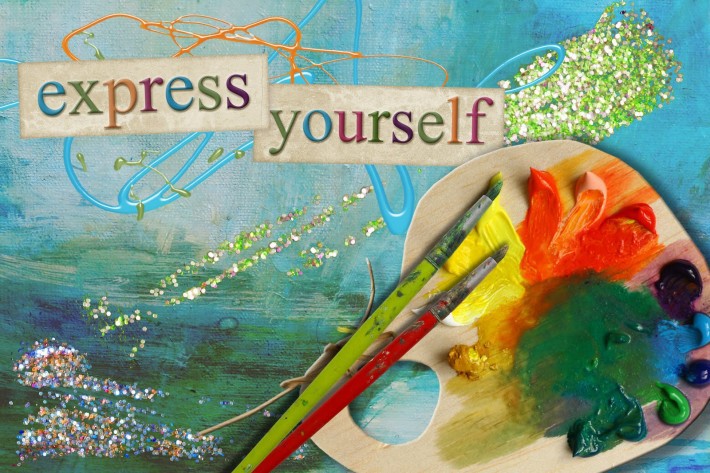Expressing yourself is such an important part of who you are, and it can be a healthy way to deal with stress. However, some types of self-expression may not be so great for your mental health. In this blog post, we will discuss what self-expression is and why it’s important for our mental well-being. We will also talk about the different types of expression and how they affect us differently. Then we will give useful tips on how to find healthy ways to express ourselves in all aspects of life (including at work).
Contents
What Is Self-expression?
Self-expression is often defined as how we communicate our emotions, thoughts, and beliefs to other people. It’s an important part of who you are, how you relate with others and it can affect your mental well-being greatly if done in a negative or unhealthy manner.
Self-expression is one of the primary ways we communicate with others. It’s how we share our thoughts, feelings, and experiences with the people around us. For some people, self-expression can be a very healthy way to deal with stress or difficult emotions. It can help us feel more connected to others and it can also make us feel more empowered.
However, for some people self-expression can also be a way to release anger or other negative emotions. If this is done in an uncontrolled or destructive manner it can lead to problems with our mental health. As, it can cause us to feel isolated from others, increase stress levels, and even lead to depression or anxiety.
What Self-Expression Is Not?
Self-expression is not the same as self-indulgence. It’s also different than selfishness, which involves only focusing on yourself without considering how your actions affect other people around you. Expressing who we are should take into account what happens to others because of our choices and behaviors; it can be part of helping them out or bringing them down.
Self-expression is not always healthy
Just because we can express ourselves, doesn’t mean that we should do it in every situation or in a way that’s harmful to us. There are times when it’s better to hold back and not say anything at all.
For example, if you’re feeling angry and you lash out at someone, that’s not healthy self-expression. It might feel good to get all of those angry feelings out at the moment, but it’s not going to help you or the other person in the long run.
In addition, some forms of self-expression can be considered offensive and may hurt others. For example, telling racist jokes or making lewd comments about another person’s body.
Offensive self-expression is not healthy and can lead to retaliation against you if the other person feels offended enough. This could result in a lawsuit for sexual harassment, getting fired from your job for creating a hostile work environment with offensive language, etc.
What Is The Difference Between Healthy And Unhealthy Self-expression?
There is a big difference between healthily expressing yourself and doing so in an unhealthy manner. Healthy self-expression comes from a place of authenticity and allows you to connect with others on a deeper level. It can be anything from talking openly about your feelings, writing poetry or songs that express what’s going on inside of you, painting, or dancing.
Unhealthy self-expression involves things like yelling or screaming, breaking things when you’re angry, hitting something to let out your aggression, etc. The unhealthy expression also includes acts of violence such as bullying and hurting others because it makes us feel better about ourselves in the short term but doesn’t help resolve our problems at all. It can also involve saying things that are hurtful or mean to others just to get a reaction.
What Constitutes Offensiveness?
This is a difficult subject because what one person finds offensive, another might not. However, there are some things that almost everyone would consider grossly inappropriate if they were ever said publicly or in the workplace:
- Calling someone by a certain derogatory name repeatedly (even though you think it’s funny). If the other person doesn’t like it, they will probably let you know.
- Making sexual comments about someone’s body parts or using profanity when talking to them directly (or in their presence).
- Joking about subjects that are sensitive for the other person such as race, religion, disabilities, etc. This doesn’t mean you can never joke around with your friends, but be aware of what might be offensive to them.
NOTE: Self-expression isn’t bullying or putting other people down through negative behavior such as making fun of someone else or using sarcasm to hurt someone’s feelings. It also isn’t trying to control or change the way others think or behave. If you’re not sure whether or not a certain type of self-expression is appropriate, it’s always best to err on the side of caution and avoid saying or doing anything that could potentially hurt someone else’s feelings.
Types Of Self Expression

There are several types of self-expression, and depending on the type you use can affect your well-being in different ways.
The Two Main Types (Largely Used For Communication)
Verbal Self Expression
This type of expression is done through talking, whether it’s with friends, family, or a therapist. It can also be in the form of yelling or screaming and can be a healthy release of negative emotions, however, it’s important to make sure you’re not overdoing this type of self-expression as well.
Non-Verbal Self Expression
This is done through nonverbal communication such as facial expressions or body language. While some forms of nonverbal expression are acceptable in most situations (such as smiling), others (such as crossed arms) can be seen as defensive or unapproachable.
The Two Common Types (Based On Degree Of Expression)
There are many different types of self-expression, and they can be divided into two categories: expressive and defensive.
Expressive Self-expression
Expressive self-expression is when we communicate our thoughts, feelings, and emotions in a healthy way that allows us to connect with others. This type of expression can be used to form strong relationships with others and is generally seen as positive.
Defensive Self-expression
On the other hand, defensive self-expression is when we communicate our thoughts in a way that doesn’t allow for healthy communication or understanding of ourselves or others. This type of expression can lead to isolation from others due to unapproachable body language (such as crossed arms) or negative facial expressions. It can also lead to more stress and anxiety in our lives.
NOTE: While expressive self-expression is generally seen as positive, it’s important to remember that all types of self-expression should be used healthily. This means that if you’re using verbal expression to yell or scream at someone, it’s not healthy and you should find a different way to deal with your anger or stress.
The Other Types (Based On Intention Behind Communication)
Creative Self Expression
This type of expression is often in the form of writing, art, or music. It can be a healthy way to express yourself and your emotions when done correctly. For instance, writing can help you to process and understand your thoughts and feelings better, while art can be a great way to express emotions that are difficult to put into words.
Intellectual Self Expression
This type of expression is found in the way that you communicate your opinions and thoughts to others. Sometimes it can be a good thing, but some people over-express their ideas which may alienate them from those around them as well as make another feel like they need to share similar beliefs.
Sexual Self Expression
This type of expression is often found in the form of sexual behavior and can be a normal part of expressing yourself sexually. However, if you’re acting out on your desires with others it could lead to negative consequences such as STIs or unwanted pregnancies which would not be considered healthy self-expression.
Emotional Self Expression
This type of expression is often found in the form of anger or sadness and can be healthy or unhealthy depending on how it’s expressed. For instance, crying or yelling when you’re feeling sad is a healthy way to express your emotions, but punching a wall or screaming at someone else is not.
Self-expression VS Free Speech

Free Speech And Self Expression
- Free speech is the right that allows us to express our thoughts and opinions without fear of persecution by government officials for not agreeing with them.
- Self-expression is a form of free speech because this type of expression allows us to communicate our thoughts and feelings without fear of persecution from others.
NOTE: Free speech is the right to express yourself freely without fear of retribution or punishment. It’s an important part of democracy and helps ensure that all voices are heard. Self-expression is not the same as free speech. Self-expression happens when you express your thoughts, feelings, and emotions to others.
Offensive Self-expression And Free Speech
We live in a society that values freedom of speech and the right to express ourselves however we see fit. But there is such thing as offensive self-expression. For example, if you dress in a way that is deliberately provocative just to get a reaction from others, or if you’re extremely vocal about your views even though you know they will offend people, then that would be considered offensive self-expression.
Importance Of Free Speech
Free speech is important because it helps ensure that all voices are heard. When we’re not allowed to express our thoughts and opinions, we can feel alienated and voiceless. This is especially true in a democracy, where free speech is essential for allowing all voices to be heard.
The Bottom Line
While there is no question that we have the right to express ourselves freely, it’s important to remember that not everyone is going to agree with what we have to say. Some people might find our views downright offensive. That’s why it’s so important to be respectful of others when we’re expressing ourselves and to think about how our words might affect them.
Expressing Yourself In The Era Of Social Media

It’s no secret that we live in a digital age where social media plays a huge role in our lives. With platforms like Facebook, Twitter, and Instagram, it’s easier than ever to share our thoughts and opinions with the world. But what does this mean for self-expression?
For one thing, it means that there are more opportunities than ever to express ourselves. But it also means that we need to be careful about what we share. The internet is a public space, and anything we post can be seen by anyone, including potential employers or future dates.
That’s why it’s important to think carefully about what we share online and to make sure that our posts reflect who we are as people. If we want to express ourselves in a way that’s respectful of others, then we should avoid posting anything that might be considered offensive.
Tips For Healthy Self-expression

Now that we know what self-expression is and some of the things that can make it unhealthy, let’s talk about how we can express ourselves in a way that benefits both us and those around us.
Start by evaluating your motives for wanting to express yourself
Are you doing it because you really need to get something off your chest, or are you just trying to be provocative or get a reaction from people? If it’s the latter, then you should probably reconsider.
Make sure that your words and actions are aligned
In other words, don’t say one thing and do another. If you’re feeling angry, appropriately express that anger (e.g., taking deep breaths, punching your pillow, getting up, and walking away).
Remember that not everyone is going to agree with you or like what you do
This doesn’t mean they are wrong; it just means that we see things differently sometimes (even if one of us thinks something is right while the other believes it’s wrong). Be respectful in your disagreements and try to understand where the other person is coming from.
If you’re in a position of authority
If you’re in a position of authority (like an employer or parent), make sure that your self-expression doesn’t impact those who are under you, even if it’s meant as humor. For example, “I don’t like when people come into work late; I’m going to start docking their pay” could be considered offensive by some employees.
Make appropriate use of “I” Statements
Use “I” statements instead of “you” statements when talking about how you feel. For example, “I feel really angry right now” is less likely to provoke a defensive reaction from someone than “You’re being so irrational.”
Resources For Healthy Self-expression
If you’re looking for more information on healthy self-expression, here are some resources to check out:
Books:
“The Dance of Anger: A Woman’s Guide to Changing the Patterns of Intimate Relationships” by Harriet Lerner
“The Artist’s Way: A Spiritual Path to Higher Creativity” by Julia Cameron
Movies:
“Counselor, The (2013)”
“The King’s Speech (2010) ”
TV Shows:
“Breaking Bad Seasons #01-04; 05; 06; 07 [BluRay]” by Vince Gilligan
Organizations:
The Center for Nonviolent Communication (CNVC) – an organization dedicated to teaching people how to communicate in ways that foster cooperation and healthy relationships. You can learn more about the CNVC on their website.
NOTE: These resources on healthy self-expression can help you feel more supported and understood. They might also help you process your thoughts and feelings.
Professionals’ View and Tips On Healthy Self-expression

Several professionals have written about healthy self-expression, here are a few tips from them:
“Express yourself carefully and constructively, without hurting others. Don’t use your freedom of speech to criticize or condemn others.”
-Ayaan Hirsi Ali (Author)
“Take risks and dare to fail! For me, failure has been the biggest source of learning and growing as an artist. It doesn’t matter if you make a mistake, what matters is how we respond to the mistakes and problems that pop up in our lives.”
-Cindy Chupack (TV Writer & Producer)
“I think it’s important for all of us to express ourselves honestly with others. It doesn’t mean telling them everything; there are many things we keep private. But it does mean sharing what we’re feeling, thinking, and dreaming about as openly as possible.”
-Shane Koyczan (Poet)
“Find the courage to be imperfect. It is through our cracks and vulnerabilities that we connect with others and create meaningful relationships.”
-Brene Brown (Researcher & Author)
“Your voice matters. It’s what makes you unique and it has the power to change the world.”
-Malala Yousafzai (Activist & Nobel Laureate)
Conclusion
Self-expression is an essential part of what it means to be human. There is no right or wrong way to express yourself, as long as it’s healthy. So go ahead and get creative when expressing yourself! It can be helpful for both mental health and self-understanding in general.
It’s how we connect with ourselves and each other, which is why it’s so important that we do the best job possible expressing our authentic selves. Just be sure to take care of yourself and not cross the line into offensive territory.
If you are looking for affordable Online Counseling MantraCare can help: Book a trial therapy session


